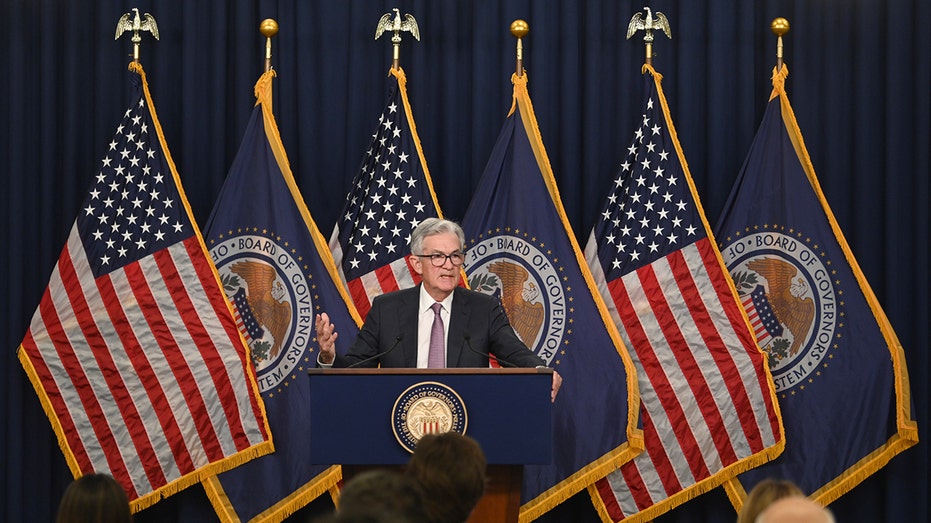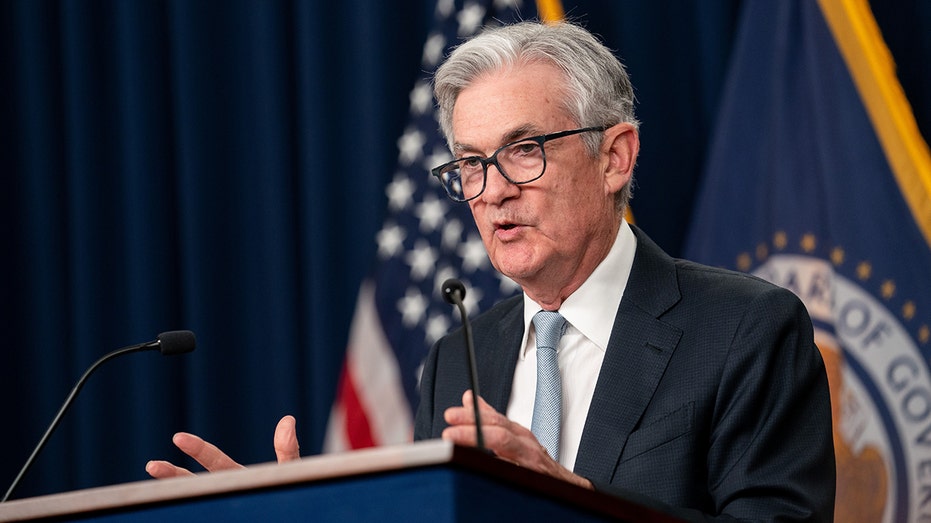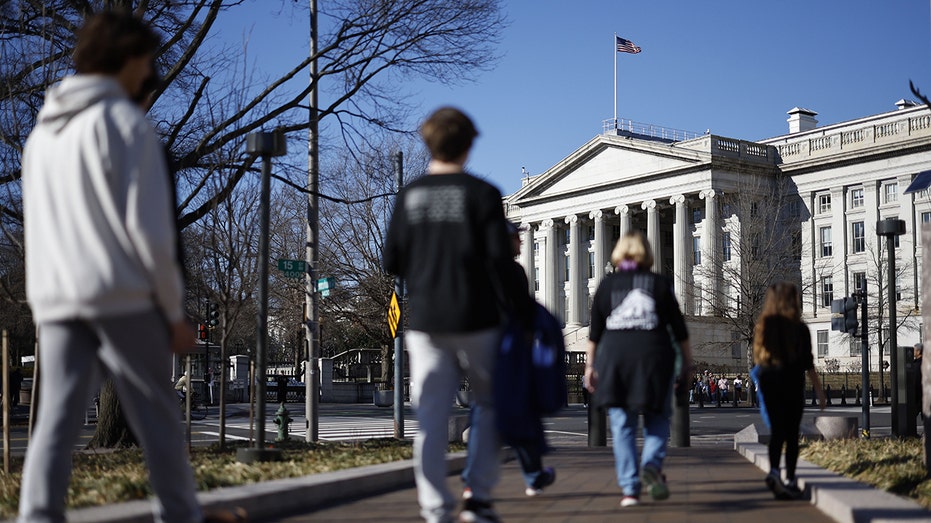Fed Chair Powell in congressional hot seat as sticky inflation squeezes Americans
Fed sees 'ongoing rate increases' as necessary amid stubborn inflation
Powell has 'made it clear' the Fed will not 'pivot' on rates: Sica
Circle Squared Alternative Investments CEO Jeff Sica joins "Varney & Co." to share his market outlook and breaks down his predictions for how the Federal Reserve will handle rate hikes going forward.
Federal Reserve Chairman Jerome Powell will be in the spotlight on Capitol Hill this week as he faces scrutiny over the central bank's Herculean task: Fight inflation with the sharpest interest rate increases since the 1980s without tipping the U.S. economy into a recession.
Powell is slated to appear before the Senate Banking Committee on Tuesday and before the House Financial Services Committee a day later as part of his semi-annual testimony on monetary policy.
"The committee is strongly committed to returning inflation to its 2% objective," the Fed said in the report to Congress released on Friday. The nation's central bank indicated that "ongoing increases in the target range will be appropriate in order to attain a stance of monetary policy that is sufficiently restrictive."
Central bankers are in the midst of the most aggressive campaign since the 1980s to crush persistently high inflation. Although the consumer price index has slowly fallen from a high of 9.1% notched in June, it remains about three times higher than the pre-pandemic average.
FED SIGNALS MORE INTEREST RATE HIKES NEEDED TO FIGHT STICKY INFLATION

Federal Reserve Chair Jerome Powell attends a news conference on Sept. 21, 2022, in Washington, D.C. (Chen Mengtong / China News Service via Getty Images / Getty Images)
Markets are closely watching Powell for clues over what comes next in the Fed's inflation fight – including how much higher officials plan to raise rates and what they need to see before stopping the increases.
Officials voted in February to raise the benchmark interest rate a quarter percentage point to a range of 4.5% to 4.75% and signaled that a "couple more" increases are on the table this year. That followed a half-point increase at their December meeting and four consecutive 75-basis-point moves before that.
The Fed's rate-setting committee meets later this month.
Markets widely expect the Fed to continue raising rates at a quarter-point pace, but a slew of hotter-than-expected economic data reports in recent weeks — including the blowout January jobs report and disappointing inflation data that pointed to the pervasiveness of high consumer prices — has raised the specter of a higher peak rate or steeper increases.
INFLATION STILL OUTSTRIPPING WAGES IN MOST US CITIES

Federal Reserve Chair Jerome Powell (Liu Jie / Xinhua via Getty Images / File / Getty Images)
The Labor Department reported in February that the consumer price index rose 0.5% in January, the most in three months. The annual inflation rate also surprised to the upside at 6.4%.
That data has prompted some traders to reexamine their rate hike expectations for the year, with a growing number of investors now betting the Fed could raise rates higher than previously projected. About 33% of traders expect the Fed to increase the federal funds rate by another 75 basis points by the end of the year, while 64% expect rates to increase by 50 basis points, according to data from the CME Group's FedWatch Tool.
Since then, Fed officials have acknowledged that rates may need to go higher than expected and remain elevated for longer amid signs that inflationary pressures within the economy remain strong.
"I want to be completely clear: There is a case to be made that we need to go higher," Atlanta Fed President Raphael Bostic told reporters Thursday. "Jobs have come in stronger than we expected. Inflation is remaining stubborn at elevated levels. Consumer spending is strong. Labor markets remain quite tight."

People walk near the U.S. Treasury building in Washington, D.C., Dec. 30, 2022. (Ting Shen / Bloomberg via Getty Images / Getty Images)
But as the Fed confronts continuing high inflation and the looming threat of recession, Powell is also meeting increased skepticism that he can successfully navigate the central bank through one of the most challenging economic periods since the 1970s to secure a "soft landing."
Republicans are expected to question Powell – who just two years ago classified inflation as transitory and likely to subside soon – for misjudging the price spike and urge him to continue tightening monetary policy. GOP lawmakers will likely also try to get Powell to agree that President Joe Biden and Democrats bear responsibility for the cost-of-living crisis because of the trillions in COVID-19 relief money and other spending packages passed in 2021 and 2022.
CLICK HERE TO READ MORE ON FOX BUSINESS
Powell typically dodges the political bear traps.
Democrats, meanwhile, will likely press Powell on putting workers first, even as the Fed tries to bring inflation closer to its 2% target. Hiking interest rates tends to create higher rates on consumer and business loans, which slows the economy by forcing employers to cut back on spending. Higher borrowing costs are already squeezing consumers in the form of steeper mortgage rates, credit card fees and auto loans.





















